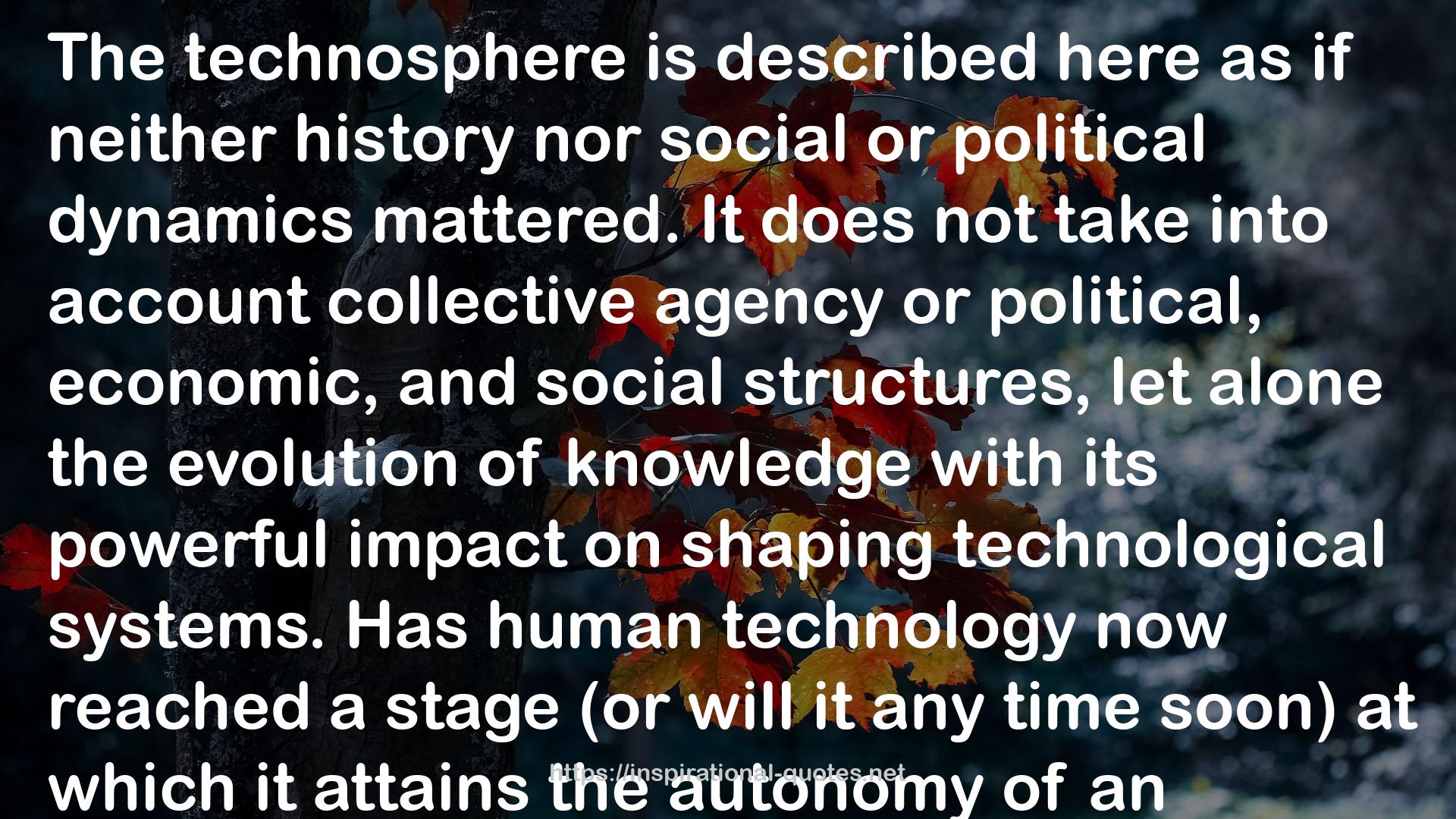" The technosphere is described here as if neither history nor social or political dynamics mattered. It does not take into account collective agency or political, economic, and social structures, let alone the evolution of knowledge with its powerful impact on shaping technological systems. Has human technology now reached a stage (or will it any time soon) at which it attains the autonomy of an organism with its own agency - an autopoietic structure reproducing its own organization? Such generalizations tend to overlook some essential features of human interaction with the global environment.
For instance, while the biosphere has proven its resilience over the course of at least 3.5 billion years of evolution, the technosphere may turn out to be a rather fragile scaffolding for human existence. While it is quite conceivable that the sum total of the unintended consequences of our actions has developed its own dynamics, even in the age of the Anthropocene escape routes may still be left to us - an observation, however, that does not imply, vice versa, that there will be a guarantee for the existence of an escape route. It rather appears that the dynamics underlying the Anthropocene might well enhance both the challenges with which we are confronted and our opportunities to react to them, leaving the question open as to whether the latter will always be sufficient to match the former. Is it possible, for instance, that geoengineering can intervene in the planetary system to the point that a new state of the planetary system would be reached in which high carbon dioxide concentration, radioactive pollution, and other unintended consequences of industrialization are no longer challenging problems but can be safely kept under control by novel technologies? Given the fact that macro-scale interventions in the Earth system are beyond anything that human engineering has achieved so far, and given the fact that there are still important gaps in our knowledge about our planetary system, we are certainly on the safer side to prioritize, at least for the time being and to the extent that it is possible at all, the preservation of our existing Earth system and damage control. "
― , The Evolution of Knowledge: Rethinking Science for the Anthropocene
